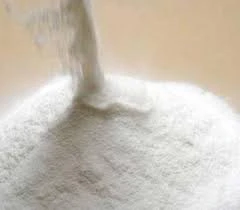
Dec . 18, 2024 19:03 Back to list
hpmc chemical
Understanding HPMC A Versatile Pharmaceutical Excipients
Hydroxypropyl methylcellulose (HPMC) is an important chemical compound that plays a crucial role in the pharmaceutical industry. As an excipient, HPMC is widely utilized in various applications, from drug formulation to food processing. Its unique properties make it a highly versatile ingredient, which has led to its adoption across a variety of sectors.
HPMC is a semi-synthetic polymer derived from cellulose, a natural polymer found in the cell walls of plants. The modification of cellulose to create HPMC involves substituting hydroxyl groups (-OH) with hydroxypropyl and methoxy groups. This alteration not only increases the solubility of cellulose in water but also provides an array of beneficial physical and chemical properties. As a result, HPMC is water-soluble and exhibits thickening, emulsifying, and film-forming characteristics.
Understanding HPMC A Versatile Pharmaceutical Excipients
Moreover, HPMC is extensively used in the manufacturing of hydrophilic matrix systems, which are common in sustained-release drug delivery. Due to its gel-forming abilities when in contact with water, HPMC provides a matrix that slows down the diffusion of drugs from the tablet, ensuring a prolonged medication effect over time. This feature is particularly important in managing chronic diseases where consistent drug levels are critical.
hpmc chemical

In addition to its role in tablets, HPMC is also a popular choice in the production of capsules. The polymer is used to create vegetarian capsules that serve as an alternative to traditional gelatin capsules, providing a suitable option for vegan and vegetarian patients. These capsules not only protect the API from degradation but also improve swallowing ease for patients.
Apart from its applications in drug formulations, HPMC finds significance in other industries, such as food, cosmetics, and construction. In food products, it acts as a thickener, stabilizer, and emulsifier, improving texture and appearance. In cosmetics, HPMC provides a gel-forming property that enhances the performance of creams, lotions, and gels, offering a pleasant feel and stability to the final product.
The versatility of HPMC is underscored by its ability to form films, which has led to its use in coatings for tablets and nutritional supplements. The film-coating process helps mask unpleasant tastes and odors of the active ingredients, improving the overall patient experience. Coatings can also provide an additional level of protection against environmental factors, thereby extending the shelf-life of sensitive compounds.
While HPMC is generally regarded as safe for various applications, it is essential for manufacturers to ensure compliance with regulatory standards and guidelines. The quality of HPMC used in pharmaceutical applications is vital since impurities could negatively impact the efficacy and safety of the products.
In conclusion, hydroxypropyl methylcellulose (HPMC) is a pivotal chemical compound with wide-ranging applications in various industries, particularly in pharmaceuticals. Its unique physicochemical properties, such as solubility, thickening ability, and controlled-release characteristics, make it an invaluable excipient in drug formulation. Whether used in tablets, capsules, or other pharmaceutical forms, HPMC ensures the efficacy and stability of medications while also enhancing patient compliance. As research and innovation continue in the field of drug delivery and formulation, HPMC is likely to remain a critical component in the development of advanced pharmaceutical products.
-
Versatile Hpmc Uses in Different Industries
NewsJun.19,2025
-
Redispersible Powder's Role in Enhancing Durability of Construction Products
NewsJun.19,2025
-
Hydroxyethyl Cellulose Applications Driving Green Industrial Processes
NewsJun.19,2025
-
Exploring Different Redispersible Polymer Powder
NewsJun.19,2025
-
Choosing the Right Mortar Bonding Agent
NewsJun.19,2025
-
Applications and Significance of China Hpmc in Modern Industries
NewsJun.19,2025







